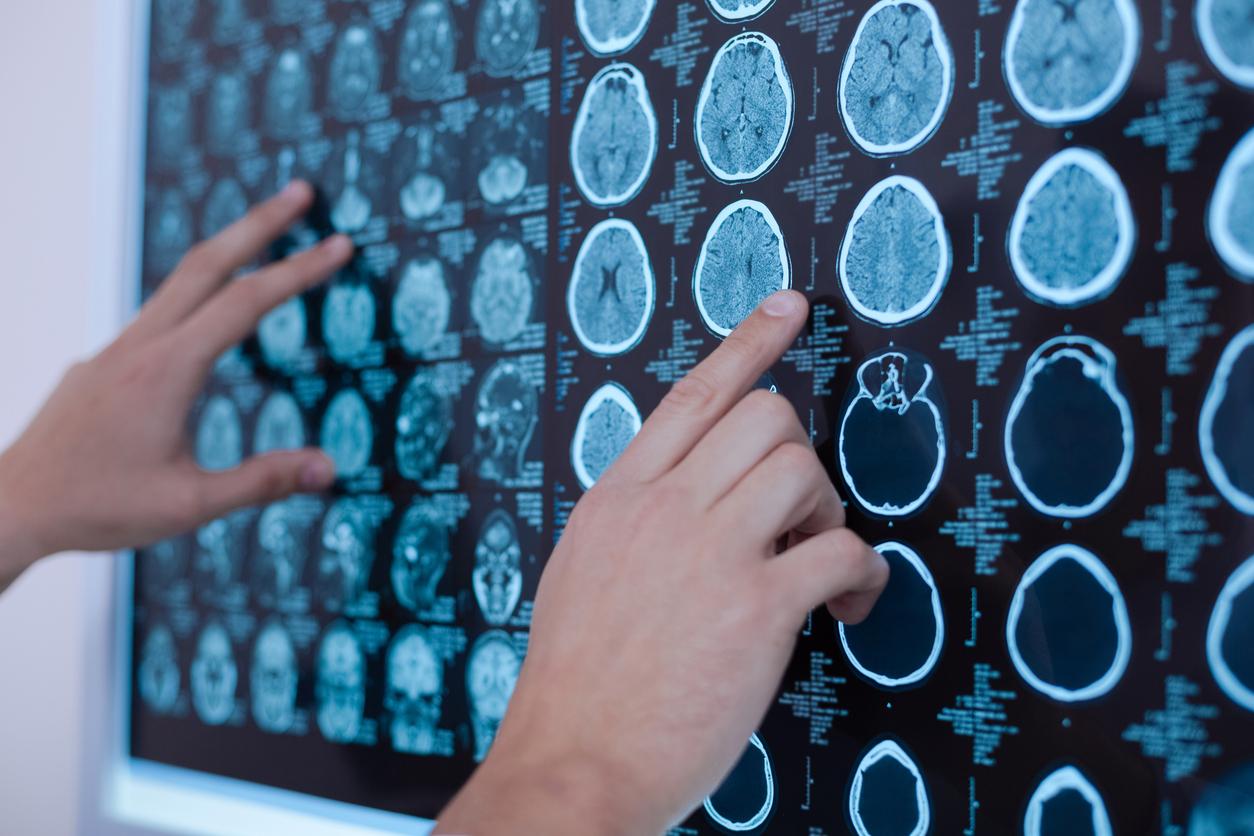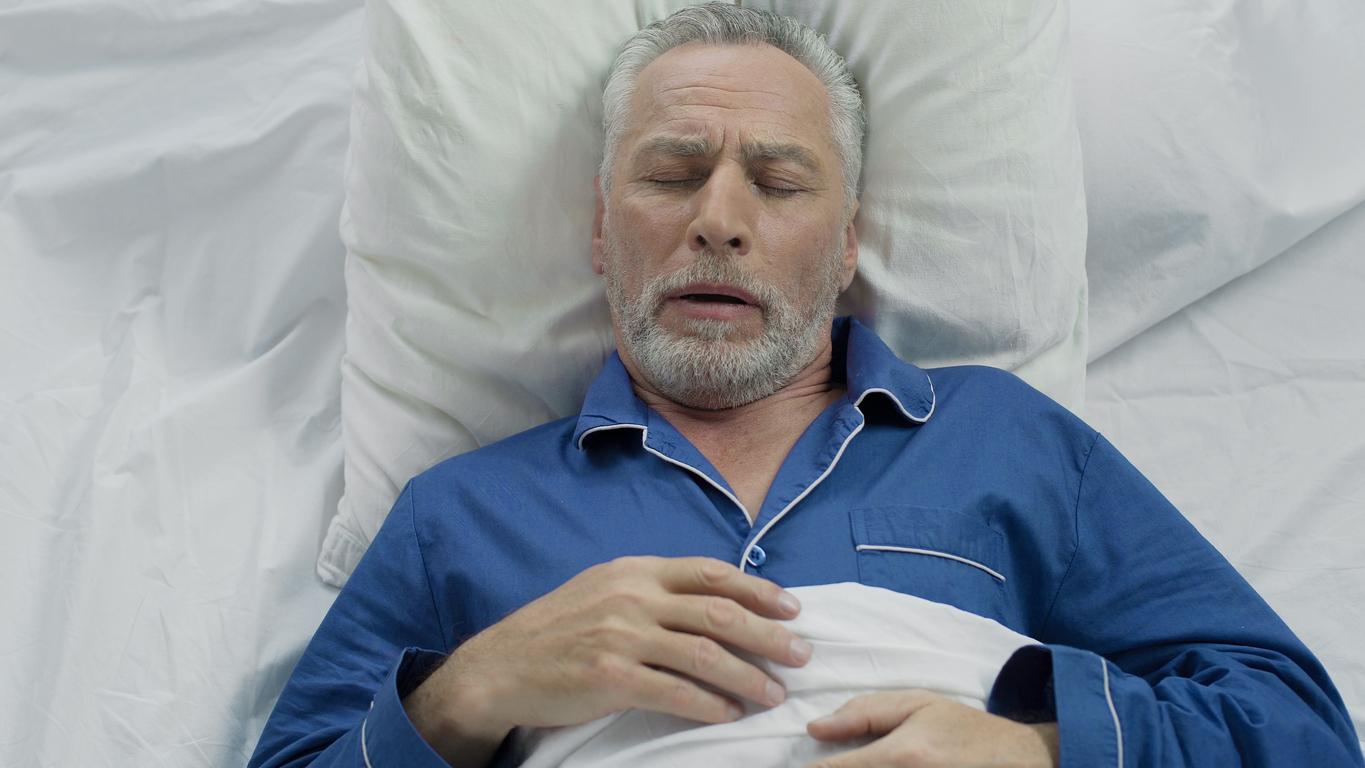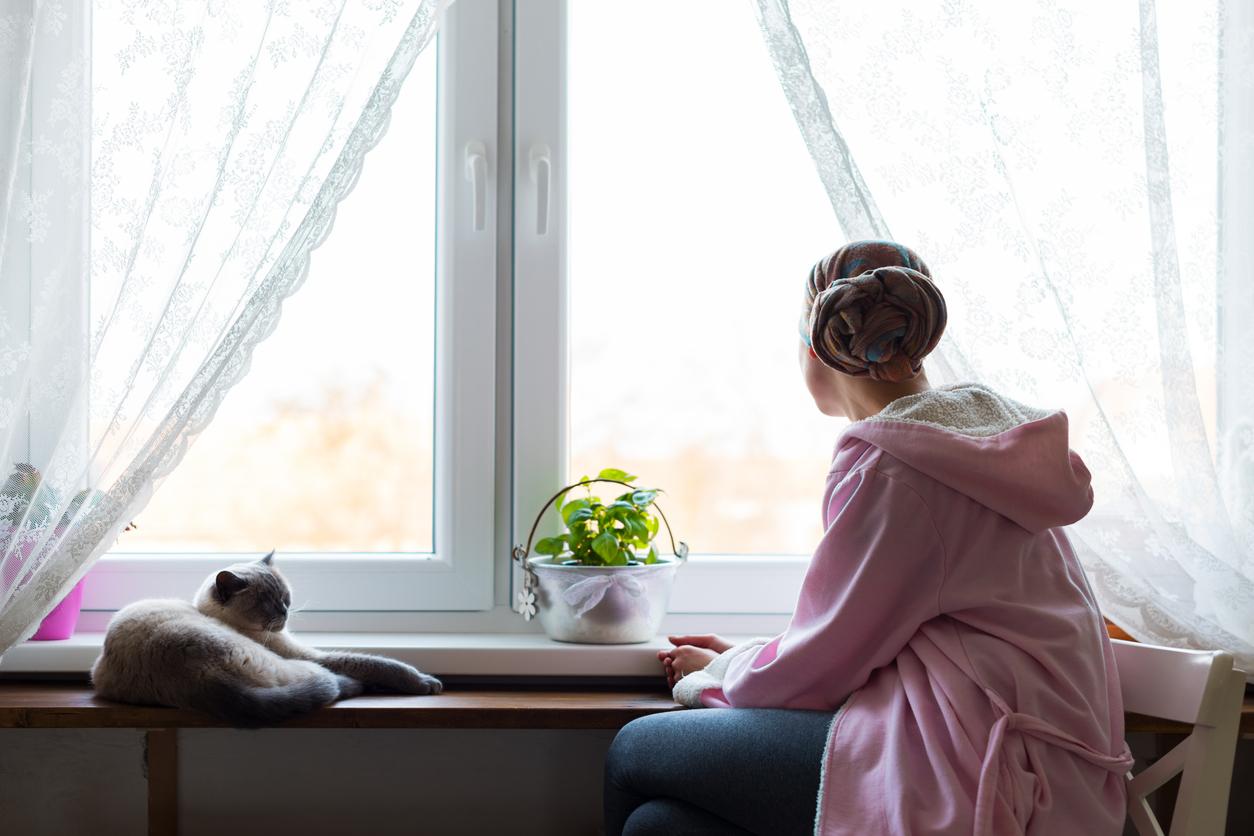If there is currently no preventive treatment against the coronavirus, the hospital care has improved : at the start of the epidemic, patients taken to hospital for breathing difficulties were very often put on artificial respirators, therefore asleep and connected to a machine to breathe, for two to three weeks. Today, the approach is different. To overcome respiratory problems, severe patients are put on “oxygen therapy” via a light device connected to the nostrils, allowing them to “shoot” pure oxygen. Hospitalization time is reduced. In addition, doctors use corticosteroids (dexamethasone), effective in severe patients.
>> Read our article on dexamethasone
But research continues and new molecules could arrive on the market at the end of 2021.
Remember that the treatments aim to fight the virus at two levels. During the phase where the virus multiplies in the organism after having infected it. Here the idea is to stop the progression of the virus.Then, theduring the inflammation phase called “cytokine storm“, a sudden inflammatory attack at the origin of the deterioration of the state of health of severe patients and the appearance of a acute respiratory distress syndrome. These latter treatments aim to avoid or limit severe forms and deaths..
Still, these drugs that fight inflammation are not as effective as vaccines in limiting severe forms. Clearly, the miracle molecule is not for tomorrow. That said, according to Bruno Canard, interviewed by our colleagues from the JDD (edition of September 5), the key will be foundyears of doubt in the combination of several drugs: “As for theHepatitis C or AIDS, at the beginning we don’t have enough powerful medicine. Then we combine them, and their combination becomes overpowering.”
Molnupavir (Merck), the antiviral tablet
the molnupavir is a anti viralfrom the American laboratory Merck, whose advantage is that it is administered orally in the form of a tablet to take as soon as you have tested positive for Covid-19. So outside the hospital. Its principle? It blocks the replication of RNA viruses and reduces viral loadwhich would also reduce the risk of contagion. Only downside (and not least) : a very mutagenic effect, ie it could cause genetic mutations.
The phase 3 clinical trials currently in progress will make it possible to precisely verify the good tolerance of this treatment.
An interim analysis was delivered by the laboratory on October 1, the results are encouraging: the drug could halve the risk of death or hospitalization for those most at risk. So encouraging thathe Merck & Co laboratory and its partner Ridgeback Biotherapeutics have filed an emergency authorization request, they announced in a statement on October 11, 2021.
The final results are expected in late 2021 or early 2022.
>> Read our article on molnupavir
Paxlovid (Pfizer), another antiviral pill
Another anti-viral pill could arrive on the market if the results communicated by the Pfizer laboratory are confirmed via the clinical study.
The Pfizer anti covid pill indeed presents very positive initial results, according to a press release from the laboratory on November 5, 2021. This antiviral drug would indeed be 89% effective against hospitalizations and deaths in adults at high risk of severe form of the disease. The Pfizer laboratory should provide its results “as soon as possible” to the American Medicines Agency (FDA).
>> Read our article on the Paxlovid
Ronapreve (Roche), a monoclonal antibody treatment in use
This drug developed by the American biotech Regeneron in partnership with the Swiss laboratory Roche, combines two monoclonal antibodies, casirivimab and imdevimab, capable of targeting the Spike protein, the entry point of the virus into our cells. This treatment, administered early enough after infection, is effective in preventing the worsening of symptoms by boosting immunity.
The European Medicines Agency (EMA) said Thursday, November 11 in a press release that it has approved the use of Roche’s treatment, Ronapreve. “The Committee recommended that Ronapreve be authorized for adults and adolescents (from 12 years of age and weighing less than 40 kg) who do not require supplemental oxygen and who are at risk of developing a severe form” , specifies the European Medicines Agency.
Since August 2021, it has already been authorized and prescribed in France in patients at high risk of a severe form of Covid-19, in hospitalized patients requiring non-invasive oxygen therapy and who have not naturally developed their own antibodies (immunocompromised patients , patient at risk of complications related to comorbidities, patients aged 80 years and over who are at high risk of progression to a severe form of the disease).
This treatment, which is administered by injection, requires hospital monitoring. What’s more, it is very expensive (1700 euros per dose), which would not allow its use to be extended to the entire population. Moreover, in the event of a mutation of the Spike protein linked to a variant, it would no longer be effective.
>> Read our article on the Ronapreve
the Regkirona, another monoclonal antibody treatment
Regkirona or Regdanvimab is already marketed in South Korea. Developed by the South Korean company Celltrion, Regkirona is intended for patients who do not need supplemental oxygen and who are at risk of developing serious forms.
The idea of synthetic antibodies is to select natural antibodies and reproduce them artificially to then administer them as a treatment, generally by an infusion. This treatment was approved by the EMA on November 11. On this occasion, the European Commissioner for Health, Stella Kyriakides, declared that the approval of the two drugs (Regkirona and Ronapreve) was a “milestone” against disease. “With increases in Covid-19 infections in almost all Member States, it is reassuring to see many promising treatments in development”she added in a press release.
AZD7442, the preventive treatment from AstraZeneka
This is another preventive monoclonal antibody treatment developed by the British-Swedish laboratory AstraZeneka.
Non-hospitalized patients with symptoms of the disease for seven days or less who received a 600 mg dose of AZD7442 by intramuscular injection had a 50% reduction in the risk of contracting a severe form of Covid-19 or to die, compared to those who received a placebo, indicates a press release from the laboratory on October 11.
In addition, in an analysis of data on trial participants who received treatment within five days of the first symptoms shows that “AZD7442 reduced the risk of developing severe or fatal Covid-19 in 67% cases compared to a placebo,” the statement said.
>> Read our article on the AZD7442
The anti-inflammatory tocilizumab, being evaluated by the EMA
Tocilizumab, an effective anti-inflammatory against the cytokine storm, is currently being assessed by the European Medicines Agency (EMA). This medicine (RoActemra) from Roche laboratories could – in the event of a green light – be proposed to patients hospitalized for severe forms in addition to dexamethasone. It is administered by injections.
>> Read our article on tocilizumab
Xav-19, the other promising anti-inflammatory
Xav-19, a treatment based on polyclonal antibodiesproduced by the Nantes laboratory Xenothera, intended to prevent severe forms by calming inflammation. The idea is to prevent patients from going to intensive care.
Currently in a phase 2 clinical trial, the final results of which are expected at the end of 2021 for a possible launch in 2022has already been ordered by the State.
>> Read our article on the Xav-19
Octofen suppository treatment
the clofocolan ancient antibiotic studied by the Institut Pasteur, could also limit severe forms. The repositioning of theOctofen is being studied as part of the project Therapid. If the prospect of benefiting from a treatment in the form of a simple suppository, the clinical trial takes time.
>> Read our article on Octofen
Read also
- Fluvoxamine: is this antidepressant effective in reducing severe forms of Covid-19?
- Collective immunity: what is it?
- Coronavirus screening: for whom? How to do the test?


















